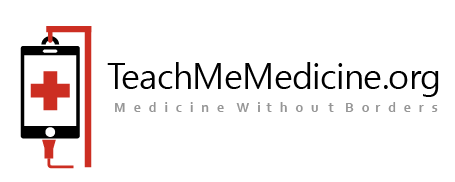Rural Practitioner Program
Rural Practitioner – a program designed to help students learn and fulfill the duties of a rural practitioner. A rural practitioner is a clinician trained to meet both the medical needs as well as environmental health for people living in rural areas in low and middle-income countries where access to medical care is limited or none. Clinical duties here include diagnosis and treatment of common medical problems, minor surgery, child care including vaccination schedule for children, providing routine gynecology care, chronic care for conditions such as high blood pressure and diabetes, and finally managing emergencies until patients are transferred to the nearest medical facility.
The curriculum here is tailored according to the student’s prior education and background. It may include courses from each of the subject areas below. The curriculum here will not be as detailed as for medical students but will be adequate enough to allow a thorough understanding of various medical problems. Once students complete the pre-medicine and basic science courses, they can start rural medicine studies. The curriculum here also includes environmental medicine, woman, and child healthcare. Topics in emergency medicine are also covered as these practitioners will have to care for patients with medical emergencies until they are transferred to a nearby hospital.
Pre-Medicine
Pre-Medicine Program: – This curriculum is not “one size fits all”, but is rather versatile to suit your academic preparation and goals. During the course, you will gain the basic skills and knowledge each medical professional is bound to have. The pre-med program was designed both for students with the past academic record in other fields and those who are just entering their baccalaureate studies. This premedical program is an adjunct support structure, not a major. You will have the opportunity to learn core subjects necessary for further application to graduate studies. The skills and knowledge you gain could be applicable during your practice.After completing the pre-med online course you are eligible to take a proctored examination and get admitted to the next level of our virtual medical school. Pre-Medical Curriculum →
Basic Sciences
Basic Sciences Curriculum includes more complex subjects, dealing directly with certain systems within the human bodies. It’s your second major step towards becoming a practicing professional. The selection of required courses includes: Anatomy and Neuroanatomy, Bio Chemistry, Embryology, Micro and Cell Biology, Immunology, Physiology and more. This course was designed to go sequentially with actual in-clinic internship and we are working hard to ensure local placements for all of our students. We expect high commitment and dedication to your studies during these two years as you are expected to pass prolific exams on each subject you’ll be taking! Learn more about the program →
Clinical Sciences
Clinical Sciences Curriculum is the most important step towards your medical career. During the final years of studies you can identify the area of your specialization and we’ll assign you a dedicated mentor to help you both with the on-site local practice and theoretical guidance. You will undertake a vast range of different medical subjects including Anesthesiology, Emergency Medicine, Endocrinology, Oncology, Surgery and Pediatrics among others. The final year is going to be excitingly busy, so make sure that your studies stand on the top of your priority list! Learn more about the program →
Rural Medicine
Rural Medicine Curriculum include common medical and surgical emergencies that a clinician can encounter in a rural setting. Even though the clinical training here actually starts from the first day of medical school, this more specialized training during the final year is geared toward providing urgent medical treatment until patients are transferred to the nearest hospital. Learn more about the program →
Environmental Medicine
Environmental Medicine Curriculum is designed to train rural practitioner to be able to bring clean water and proper sanitation to the areas they serve. Preventive care is a significant part of overall care in rural areas and good environmental health will go a long way in preventing many infections diseases. Learn more about the program →
Women and Child Healthcare
Women and Child Healthcare – a program designed to address the healthcare needs of women and children in rural areas that are too often ignored. It includes training to provide routine gynecologic care, provide well-child care visits, and make sure timely vaccination are administered. Learn more about the program→
